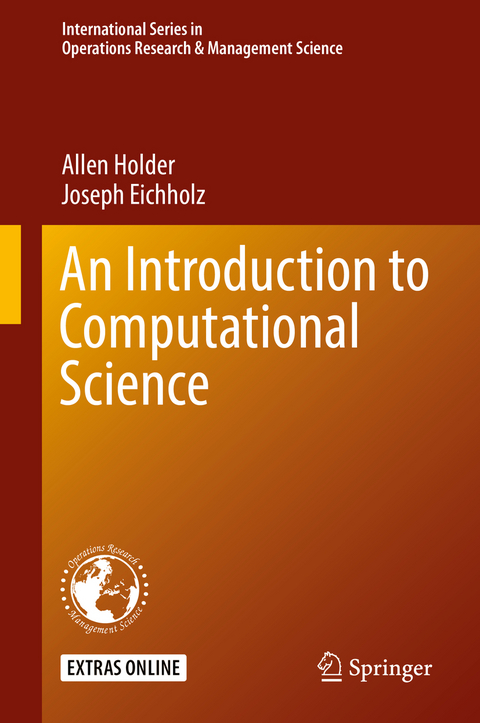
An Introduction to Computational Science
Springer International Publishing (Verlag)
978-3-030-15677-0 (ISBN)
The text is written in two parts. Part I provides a succinct, one-term inauguration into the primary routines on which a further study of computational science rests. The material is organized so that the transition to computational science from coursework in calculus, differential equations, and linear algebra is natural. Beyond the mathematical and computational content of Part I, students gain proficiency with elemental programming constructs and visualization, which are presented in MATLAB syntax. The focus of Part II is modeling, wherein students build computational models, compute solutions, and report their findings. The models purposely intersect numerous areas of science and engineering to demonstrate the pervasive role played by computational science.
Allen Holder received his B.S. from the University of Southern Mississippi and his Ph.D. from the University of Colorado at Denver. He taught at Trinity University in San Antonio, Texas for nine years before joining Rose-Hulman. He is interested in mathematical programming and its applications in medicine, biology, and healthcare. Professor Holder's work on the optimal design of radiotherapy treatments won the 2000 Pierskalla Award, and he received Rose-Hulman's Outstanding Scholar Award in 2015. He has held several editorial positions and has published with numerous undergraduates. He is a longtime supporter of, and participant in, INFORMS. Joseph Eichholz received his B.S. in Mathematics and Computer Science from Western Illinois University and his Ph.D. in Applied Mathematics and Computational Sciences from the University of Iowa. He is interested in numerical analysis, particularly with numerical solutions of partial differential equations and integral equations, as well as high performance computing. He has a special interest in applications associated with novel medical imaging techniques and contact mechanics.
Chapter 1. Solving Single Variable Equations.- Chapter 2. Solving Systems of Equations.- Chapter 3. Approximation.- Chapter 4. Optimization.- Chapter 5. Ordinary Di erential Equations.- Chapter 6. Stochastic Methods & Simulation.- Chapter 7. Computing Considerations.- Chapter 8. Modeling with Matrices.- Chapter 9. Modeling with Ordinary Di erential Equations.- Chapter 10. Modeling with Delayed Di erential Equations.- Chapter 11. Partial Di erential Equations.- Chapter 12. Modeling with Optimization and Simulation.- Chapter 13. Regression Modeling.- Appendix A.
| Erscheinungsdatum | 03.07.2019 |
|---|---|
| Reihe/Serie | International Series in Operations Research & Management Science |
| Zusatzinfo | XVI, 470 p. 164 illus., 158 illus. in color. |
| Verlagsort | Cham |
| Sprache | englisch |
| Maße | 155 x 235 mm |
| Gewicht | 889 g |
| Themenwelt | Mathematik / Informatik ► Mathematik ► Analysis |
| Mathematik / Informatik ► Mathematik ► Angewandte Mathematik | |
| Wirtschaft ► Allgemeines / Lexika | |
| Wirtschaft ► Betriebswirtschaft / Management ► Unternehmensführung / Management | |
| Schlagworte | Computational modeling • Computational Science • Differential Equations • MATLAB • Operations Research • Optimization |
| ISBN-10 | 3-030-15677-X / 303015677X |
| ISBN-13 | 978-3-030-15677-0 / 9783030156770 |
| Zustand | Neuware |
| Informationen gemäß Produktsicherheitsverordnung (GPSR) | |
| Haben Sie eine Frage zum Produkt? |
aus dem Bereich


